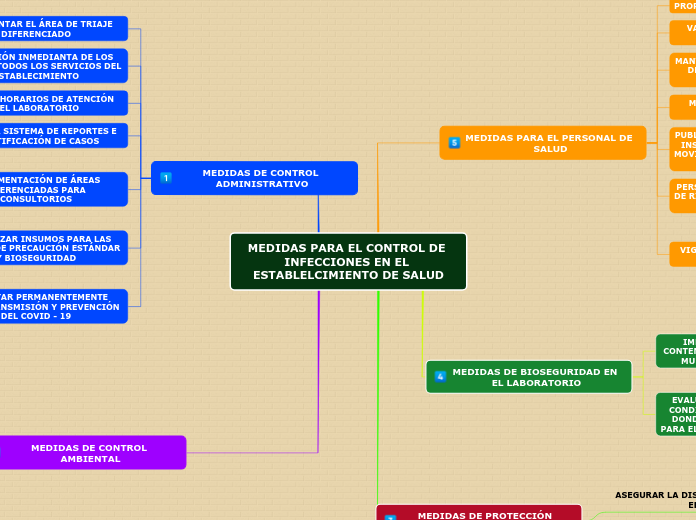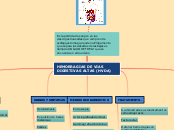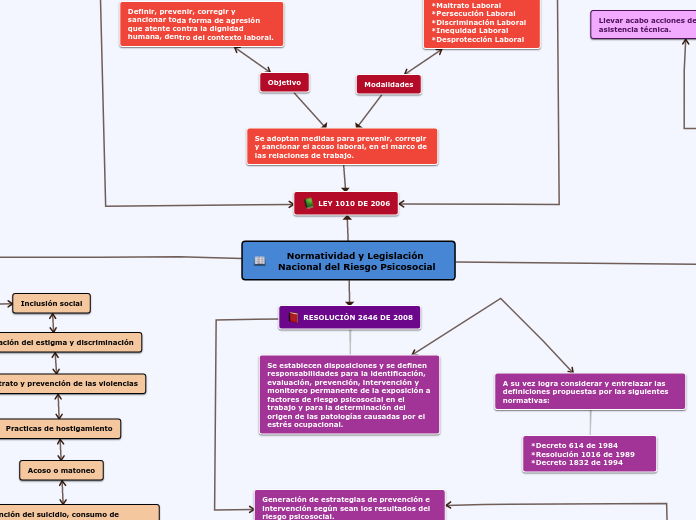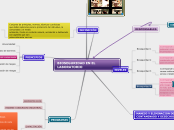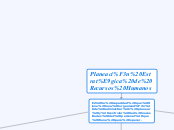MEDIDAS PARA EL CONTROL DE INFECCIONES EN EL ESTABLELCIMIENTO DE SALUD
In linguistics, syntax is the set of rules, principles, and processes that govern the structure of sentences in a given language, usually including word order.
MEDIDAS DE CONTROL AMBIENTAL
A compound sentence is a sentence that has at least two independent clauses joined by a comma, semicolon or conjunction. An independent clause is a clause that has a subject and verb and forms a complete thought.
MAXIMAR LA VENTILACIÓN NATURAL Y/O INSTALAR SISTEMAS DE VENTILACIÓN MECÁNICA EN ÁREAS CRÍTICAS
ESTERILIZACIÓN
Create your own compound sentences, using the coordinators above.
Proceso químico o físico que elimina todo microorganismo incluídas esporas.
DESINFECIÓN
Poceso físico o químico que elimin la mayoría de microorganismos patógenos y no patógenos exceptuando las esporas.
LIMPIEZA
When independent clauses are joined with coordinators (also called coordinating conjunctions), commas and semicolons, they do more than just join the clauses. They add meaning and flow to your writing.
Remoción mecánica de toda materia extraña en el ambiente, en superficies y en objetos, utilizando para ello el lavado manual o mecánico.
MEDIDAS DE CONTROL ADMINISTRATIVO
A complex sentence is a sentence that contains an independent clause and one or more dependent clauses.
An independent clause can stand alone as a sentence, but a dependent clause even though it has a subject and a verb cannot stand alone.
CAPACITAR PERMANENTEMENTE SOBRE TRANSMISIÓN Y PREVENCIÓN DEL COVID - 19
FAMILIARES
PACIENTES
PERSONAL DE SALUD
GARANTIZAR INSUMOS PARA LAS MEDIDAS DE PRECAUCIÓN ESTÁNDAR Y BIOSEGURIDAD
Attributive clauses serve as an attribute to a noun (pronoun) in the main clause. This noun or pronoun is called the antecedent of the clause.
IMPLEMENTACIÓN DE ÁREAS DIFERENCIADAS PARA CONSULTORIOS
An adverbial clause is a group of two or more words that function as an adverb in a sentence.
SALA DE PROCEDIMIENTOS
LABORATORIOS
CONSULTORIOS
OPTMIZAR SISTEMA DE REPORTES E IDENTIFICACIÓN DE CASOS
An appositive clause follows another noun or noun phrase in apposition to it; that is, it provides information that further identifies or defines it.
AMPLIAR HORARIOS DE ATENCIÓN DEL LABORATORIO
The subject clause is a dependent clause that acts as a subject.
EVALUACIÓN INMEDIANTA DE LOS CASOS EN TODOS LOS SERVICIOS DEL ESTABLECIMIENTO
A predicative clause may be introduced by conjunctions - that, whether, whether... or, as, as if, as though, because, lest, the way - or connectives.
The latter may be conjunctive pronouns - who, whoever, what, whatever, which - or conjunctive adverbs - where, wherever, when, whenever, how, why.
IMPLEMENTAR EL ÁREA DE TRIAJE DIFERENCIADO
The object clause is a phrase on which a verb performs an action. It falls at the end of a sentence, and is governed by a verb or a preposition.
MEDIDAS DE PROTECCIÓN RESPIRATORIA Y ESTÁNDAR
PACIENTE SOSPECHOSO DEBE USAR ESTRICTAMENTE MASCARILLA QUIRÚRGICA DESCARTABLE
ASEGURAR LA DISPONIBILIDAD DE EPP
MEDIDAS DE BIOSEGURIDAD EN EL LABORATORIO
EVALUACIÓN PERIÓDICA DE LAS CONDICIONES DE BIOSEGURIDAD DONDE SE PROCESEN MUESTRAS PARA EL DIAGNÓSTICO DE COVID - 19
See the example below and try to create your own simple sentences.
Tim drives the car.
IMPLEMENTAR MEDIDAS DE CONTENCIÓN ADECUADAS PARA LAS MUESTRAS DE LABORATORIO
See the example below and try to create your own simple sentences.
Tim drives.
MANIPULACIÓN
CONSERVACIÓN
ELIMINACIÓN
MEDIDAS PARA EL PERSONAL DE SALUD
VIGILAR APARICIÓN DE SÍNTOMAS DE COVID - 19
COMUNICAR INMEDIATAMENTE
AISLAMIENTO POR 14 DÍAS
TOMARS LA PRUEBA
PERSONAL DE SALUD CON FACTORES DE RIESGO NO DEBE EXPONERSE A LA ATENCIÓN DIRECTA
PUBLICAR EN LUGARES VISIBLES LAS INSTRUCCIONES PARA LIMITAR EL MOVIMIENTO DE LOS PACIENTES CON COVID - 19
MONITORIZAR EL AUSENTISMO LABORAL
The predicative is defined as an adjective or noun forming or contained in the predicate.
Its main trait is that it serves to express a property that is assigned to a 'subject'.
For e.g.: The dog is old.
Se debe de monitorizar el ausentismo laboral por razones de salud especialmente del personal que atiende pacientes sospechosos, probables o confirmados con COVID - 19.
MANTENER REGISTRO DEL PERSONAL DE SALUD QUE HAYA ATENDIDO PACIENTES CON COVID - 19
Traditional grammar defines the object in a sentence as the entity that is acted upon by the subject.
VACUNA CONTRA NEUMOCOCO E INFLUENZA
The predicate of a sentence is the part that modifies the subject in some way. Because the subject is the person, place, or thing that a sentence is about, the predicate must contain a verb explaining what the subject does and can also include a modifier.
PROPORCIONAR EPP ADECUADOS
The subject of a sentence is the person, place, thing, or idea that is doing or being something. You can find the subject of a sentence if you can find the verb.
Ask the question, 'Who or what 'verbs' or 'verbed'?' and the answer to that question is the subject.
